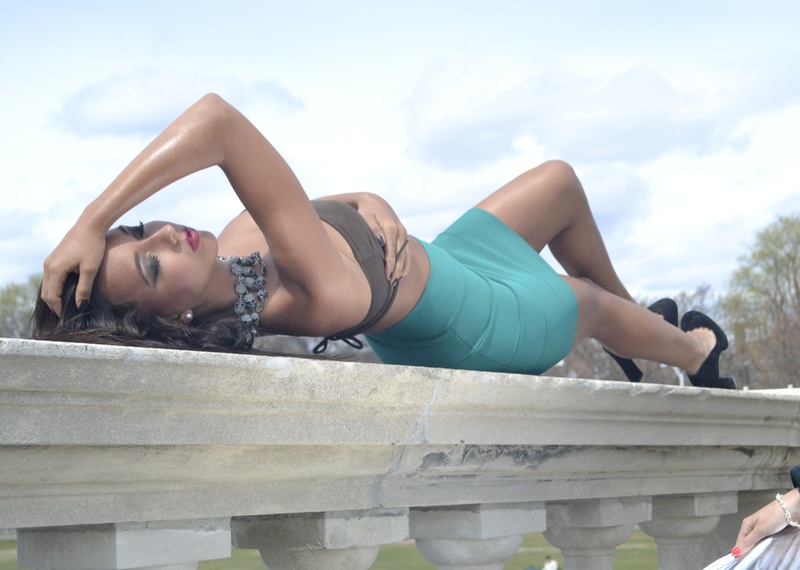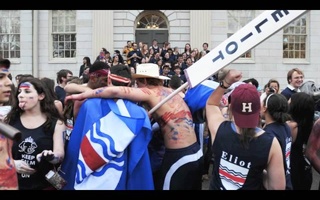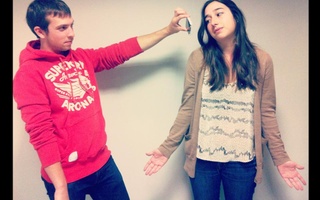Students have expressed mixed reactions to the digital editing of publicity photos for this weekend’s charity fashion show hosted by Eleganza, with some defending the aesthetic process and others calling it contradictory to the organization’s mission.
Some students who have seen the photos said they appeared to be significantly altered with photo editing software to make some women look thinner, enhance some men’s muscles, and possibly lighten the skin tone of some models.
The photos were part of a publicity campaign for the annual event in Lavietes Pavilion, which benefits the Boston charity Teen Empowerment. The mission of the event is to promote diversity and charity and to celebrate different cultures, backgrounds, and forms of expression, according to the group’s web site.
One of the models, who spoke on the condition of anonymity, said it was apparent to him that his photo had been digitally modified to give him more pronounced muscles.
“They said they’d do some photoshopping, but they didn’t make it seem like it was going to go that far,” he said.
Multimedia
The model said that he was not offended personally but could understand why some people would be if they were made to look thinner or stronger.
“To me, it was sort of funny, because anyone who knows me knows I’m not that guy,” he said. “But it’s weird, because the message of the show is to redefine beauty, but they’re conforming to fashion magazines.”
However, the photographer, Nicholas X. Tan ’12, denied the allegations that he altered the photos to make models look thinner, more muscular, or lighter skinned. Tan, who has worked as a professional model, said that any editing he did conformed to basic professional tricks.
“Most of my post-editing techniques are standard for the industry,” Tan said.
Tan said that he focused on lighting, good angles, and oil to make the models look their best. In response to questions about the musculature of some of the males in the photos, he said he would ask the men to flex before a shot to enhance their muscle tone.
Though Tan said that he removed the occasional blemish or scar, he said he did not alter models’ figures.
Michelle B. Nguyen ’13, one of three executive producers of Eleganza and a Crimson magazine editor, also said that post-production editing was typical of most fashion campaigns.
Nguyen added that the photos did not indicate any kind of discrimination or judgment based on shapes, sizes, or skin colors.
“If you look at the models in our official ad campaign, you can see the range of sizes, and there’s a range of everything,” Nguyen said. “There is no specific stick-thin figure for Eleganza.”
The goal of the photos, Nguyen said, was to promote Eleganza and encourage people to buy tickets, and the allegations distract from the show’s true cause.
“This year, we are aiming to raise the most money for this charity,” Nguyen said. “It’s not about the accusations of modifying models. They are incredible looking.”
Paoakalani A. Midro ’15, a model in the show, also defended the photo editing tactics. She said Tan had informed her that the photos would be edited but promised her that he had a strict rule of not altering subjects’ faces.
Midro said she saw only minor photo editing in the publicity pictures, including accentuating or cleaning up photos to maintain sharp lines. She said she asked the photographer to digitally modify her body but appreciated that her face did not get retouched.
“If you push it too far and you photoshop it a little too much, then it’s very noticeable and I think that is not okay,” Midro said. “But I know in the case of my pictures, it was done just to the right extent.”
But Kate Sim ’14, founder of the student group International Women’s Rights Collective, said that, although she was not familiar with the photos or involved in Harvard’s fashion scene, she found the prospect of such editing troublesome, especially given that the event tries to promote diverse forms of beauty.
“To make that kind of mission statement and alter the posters so they look a certain way is obviously contradictory to their mission statement,” she said.
—Staff writer Melanie A. Guzman can be reached at melanieguzman@college.harvard.edu.
Read more in News
Associate Dean Kopstain Leaves Harvard for Vanderbilt




















